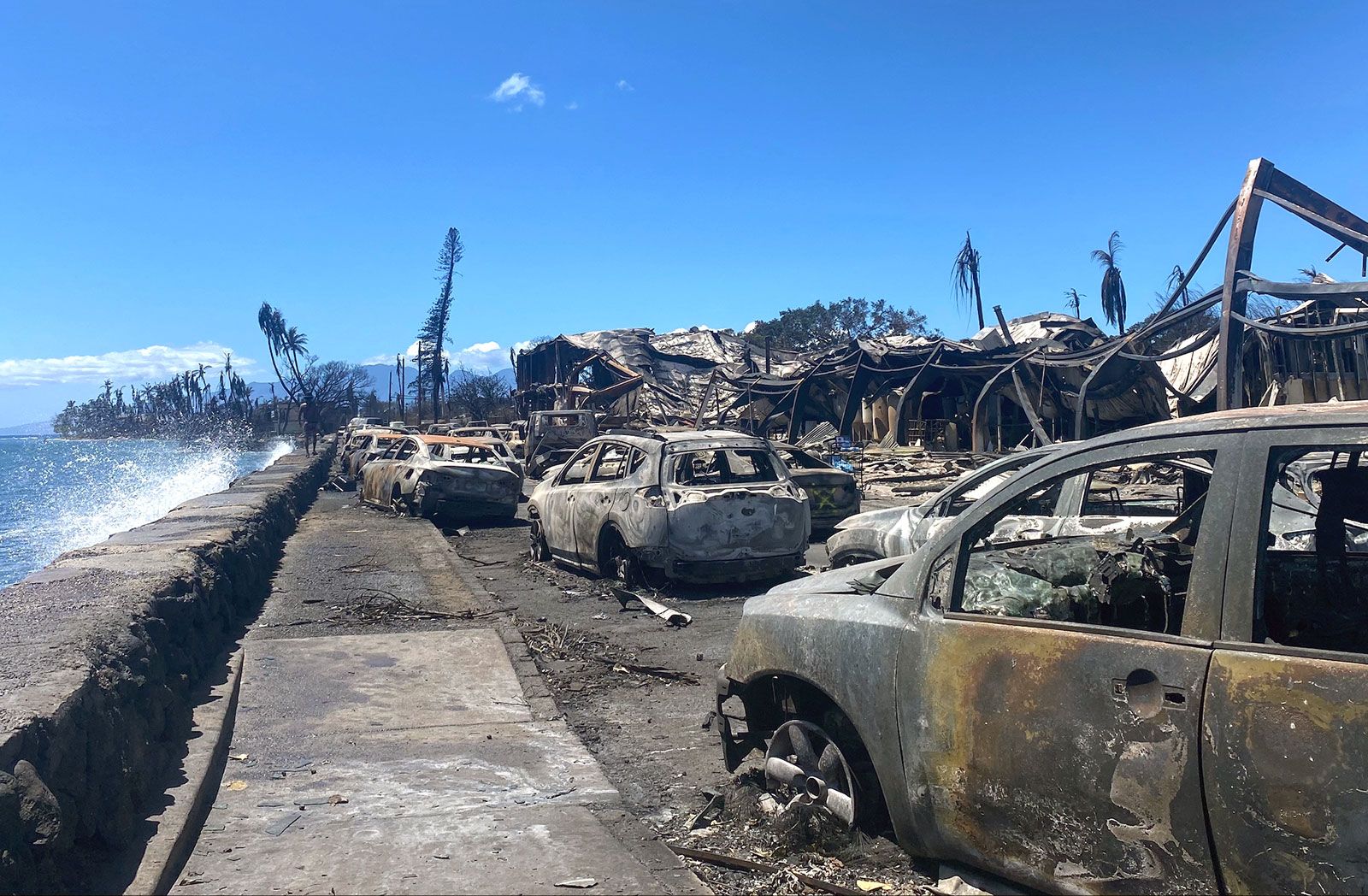Betting On Natural Disasters: The LA Wildfires And The Changing Times

Table of Contents
The Rise of Disaster Prediction and its Impact on Betting Markets
Advancements in technology and data analysis are leading to more accurate predictions of natural disasters, significantly influencing betting markets related to their severity and timing. This increased accuracy stems from several key factors:
- Improved weather forecasting models: High-resolution weather models, coupled with advanced computing power, provide more precise forecasts of extreme weather events like hurricanes, floods, and wildfires. These models incorporate factors like wind speed, humidity, and terrain to predict the potential path and intensity of these events with greater accuracy.
- Sophisticated risk assessment tools: Geographic Information Systems (GIS) and other spatial analysis tools allow for the detailed mapping of areas at high risk for natural disasters. This information is crucial for insurance companies and investors in assessing potential losses and making informed decisions.
- Real-time data acquisition and analysis from various sources: Satellite imagery, sensor networks, and social media data provide real-time information on the development and spread of natural disasters. This allows for faster response times and more accurate prediction updates, influencing betting odds in real-time.
- Increased accuracy in predicting wildfire spread, intensity, and potential impact zones: For wildfires specifically, models now incorporate factors such as fuel type, vegetation density, and wind patterns to predict the rate of fire spread with increasing precision. This allows for more targeted evacuations and resource allocation, while also informing more precise betting markets on wildfire severity and impact.
This improved accuracy is directly impacting betting markets. While outright betting on the occurrence of a disaster is rare due to the inherent human cost, markets exist for predicting the severity of an event (e.g., the intensity of a hurricane or the area burned by a wildfire) and the resulting financial losses. This creates opportunities for sophisticated investors who can leverage accurate predictions to mitigate risk or capitalize on market fluctuations.
Ethical Considerations of Betting on Natural Disasters
The emergence of markets that allow "betting on natural disasters" raises significant ethical concerns. Profiting from the suffering caused by these events is a morally complex issue with several key aspects:
- Potential for exploitation of vulnerable populations: Those most affected by natural disasters are often the most vulnerable, making them susceptible to exploitation by those who profit from prediction markets. Ethical considerations must address the potential for exacerbating existing inequalities.
- Concerns regarding the amplification of fear and anxiety: The existence of betting markets can potentially amplify fear and anxiety surrounding natural disasters, particularly for those living in high-risk areas. The focus on financial gain may overshadow the human cost.
- The morality of placing bets on events that cause significant human suffering and economic loss: The fundamental question of whether it is morally acceptable to profit from events causing widespread suffering remains a central ethical debate.
- The need for responsible regulation and ethical guidelines in this emerging market: Strong regulatory frameworks are needed to ensure transparency, prevent manipulation, and mitigate the potential for unethical practices within disaster prediction markets.
Careful consideration of these ethical issues is crucial for the responsible development of disaster prediction markets.
The LA Wildfires: A Case Study in Disaster Prediction and its Financial Implications
The LA wildfires provide a valuable case study in the interplay between disaster prediction and its financial implications. Analyzing the accuracy of predictions, the impact on insurance markets, and the role of data in informing investment decisions is vital:
- Accuracy of predictions before, during, and after the events: While predictions improved as technology advanced, early warnings were not always precise, underscoring the limitations of current predictive models. This demonstrates the inherent uncertainty in disaster prediction and the potential for both significant losses and gains for those involved in related markets.
- Impact on insurance markets and payouts: The wildfires resulted in significant insurance payouts, straining the capacity of some insurers and highlighting the need for improved risk assessment models to accurately price insurance policies for wildfire risk. Catastrophe bonds and other financial instruments designed to transfer risk became crucial tools for mitigating losses.
- The role of data in assessing risk and informing investment decisions: Data played a crucial role in evaluating the risk of wildfires, informing investment decisions related to reinsurance and other risk mitigation strategies. However, limitations in data and model accuracy remain, highlighting the need for continuous improvements.
- The financial losses and gains associated with the wildfires across various sectors: The wildfires caused billions of dollars in losses to homeowners, businesses, and the government. However, some investors, particularly those with accurate predictions and effective risk management strategies, may have profited from the event.
Specific examples of successful and unsuccessful predictions: Some models accurately predicted the rapid spread of the fire in certain areas, while others underestimated the intensity and severity of the event in others. These discrepancies demonstrate the need for ongoing research and refinement of predictive models. Analysis of financial instruments impacted (insurance derivatives, catastrophe bonds): Catastrophe bonds, which transfer risk from insurance companies to investors, experienced significant activity during and after the wildfires, providing a powerful example of how financial markets are responding to the growing need for risk transfer mechanisms. Discussion on the role of reinsurance in mitigating losses: Reinsurance plays a critical role in helping primary insurers manage significant losses from catastrophic events such as the LA wildfires.
The Future of Disaster Risk Assessment and Predictive Modeling
Future advancements in technology will significantly impact disaster risk assessment and predictive modeling:
- Artificial intelligence and machine learning applications: AI and machine learning can analyze vast amounts of data to identify patterns and improve the accuracy of predictions. These technologies can also help optimize resource allocation and emergency response.
- Improved sensor technologies and data integration: More advanced sensor networks, coupled with improved data integration techniques, will provide more comprehensive and real-time information on developing disasters.
- Enhanced modeling techniques to account for climate change impacts: Climate change is expected to increase the frequency and intensity of many types of natural disasters, necessitating the development of more sophisticated models that account for these changing conditions.
These advancements will likely lead to more accurate and timely predictions, making "betting on natural disasters" increasingly complex and potentially more lucrative, but also demanding more sophisticated risk management strategies.
Conclusion
The increasing accuracy of natural disaster prediction is creating new opportunities and challenges in financial markets. Betting on natural disasters raises important ethical considerations that need careful examination. The LA wildfires serve as a powerful example of the complexities and consequences of this emerging market. Understanding the implications of "betting on natural disasters" is crucial for investors, insurers, and policymakers alike. Further research and responsible regulation are needed to navigate the ethical and financial intricacies of this rapidly evolving field. Continue learning about the evolving landscape of disaster prediction and its impact on global risk assessment.

Featured Posts
-
 Nba Draft Lottery Winners Since 2000 A Comprehensive Quiz
May 13, 2025
Nba Draft Lottery Winners Since 2000 A Comprehensive Quiz
May 13, 2025 -
 Free Live Stream Texas Rangers Vs Boston Red Sox Mlb Game
May 13, 2025
Free Live Stream Texas Rangers Vs Boston Red Sox Mlb Game
May 13, 2025 -
 Partynextdoors Apology Settling The Score With Tory Lanez
May 13, 2025
Partynextdoors Apology Settling The Score With Tory Lanez
May 13, 2025 -
 Pregnant Cassie And Husband Alex Fine Shine At Mob Land Premiere
May 13, 2025
Pregnant Cassie And Husband Alex Fine Shine At Mob Land Premiere
May 13, 2025 -
 Idzes Tampil Penuh Venezia Tahan Imbang Atalanta Harapan Baru Timnas Indonesia
May 13, 2025
Idzes Tampil Penuh Venezia Tahan Imbang Atalanta Harapan Baru Timnas Indonesia
May 13, 2025
